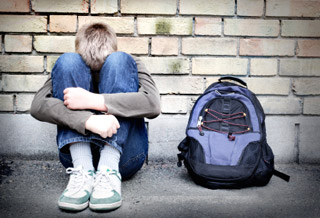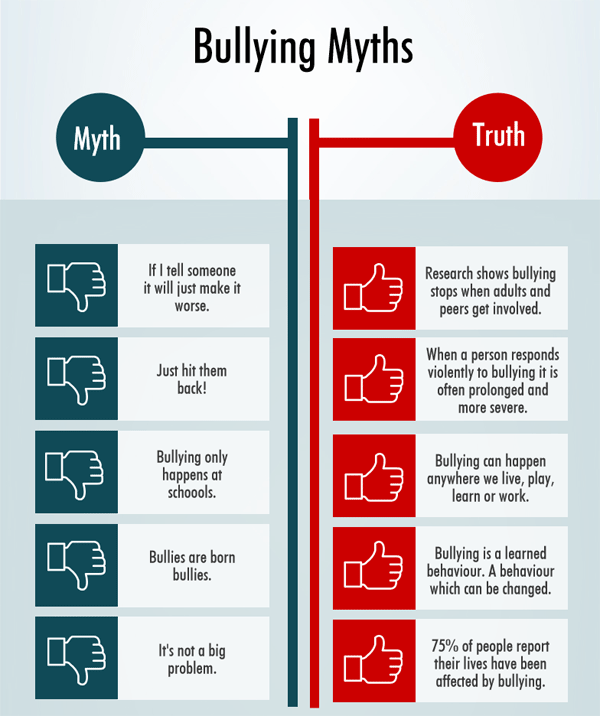Anti-bullying awareness
Youth is one of the RCMP’s five strategic priorities. It is our objective to reduce youth involvement in crime, both as victims and offenders, as well as to focus on risk factors such as bullying. The RCMP in "E" Division, through its National Youth Officer Program, provides services to approximately 1,600 schools in British Columbia. Bullying probably ranks second, behind substance abuse, for youth issues identified as concerns by our detachments.

The RCMP has school resource officers who are continually promoting how youth can protect themselves against bullying. These are some of the messages they share with youth, schools and parents:
Safety tips:
Youth, parents, school administrators and the law enforcement community all have a role to play to ensure the safety of students in schools.
It's important to remind everyone to do what they can to keep their schools bully free, to report any acts of bullying, and to assist those who are victims of bullying.
Parents should always try to keep open lines of communication with their children. This way, they are comfortable coming forward if they are being bullied at school.
Young people should also be encouraged to approach teachers or other adults they trust if they are experiencing bullying and are not comfortable speaking with their parents. The problem can only be rectified if the person affected comes forward.
A number of helpful resources are available to youth and their parents through the Centre for Youth Crime Prevention (CYCP) website. These include facts on what bullying is, why people bully, who they target, and how parents can deal with their child, whether they are being bullied or are the ones doing the bullying.
What is cyberbullying?
Cyberbullying is when a child or teen is tormented, threatened, harassed, humiliated, embarrassed or otherwise targeted by another child or teen using the Internet, interactive and digital technologies or mobile phones.
(Source: stopcyberbullying.org).
Cyberbullying is a serious offence and can include criminal charges - understand the laws concerning the use of the Internet in a negative way.
Internet safety
- For parents - Monitor your children's use of internet. Encourage them to have open discussions with you and prevent them from resorting to internet chat rooms.
- For teens - Use common sense and be socially responsible.
- Report any emails or internet content that seems suspicious or has violent content and threats.
- Remember that everything you read on-line may not be true. However, if you have suspicions that threats being made could be real, go to proper authorities and report the situation.
Bullying myths

Myth: If I tell someone it will just make it worse.
Truth: Research shows bullying stops when adults and peers get involved.
Myth: Just hit them back!
Truth: When a person responds violently to bullying it is often prolonged and more severe.
Myth: Bullying only happens at schools.
Truth: Bullying can happen anywhere we live, play, learn or work. It is a broader social problem.
Myth: Bullies are born bullies.
Truth: Bullying is a learned behaviour. A behaviour which can be changed.
Myth: It's not a big problem.
Truth: 75% of people report their lives have been affected by bullying.
To learn more about this issue, please visit www.cyberbullying.ca.
- Date modified: